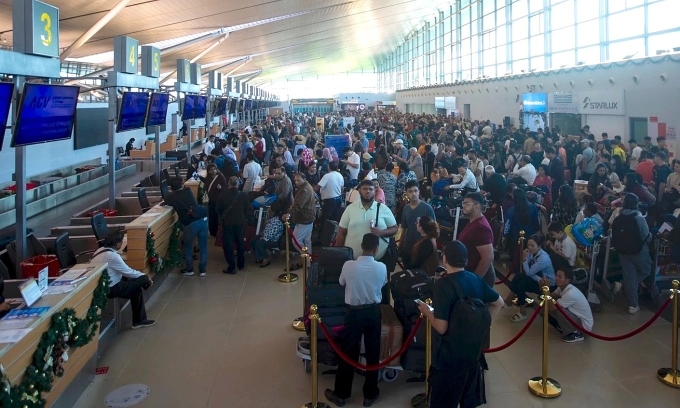
Tighter border regulations in the United States are deterring European tourists, according to Tui, Europe’s largest package holiday operator. Sebastian Ebel, Tui’s chief executive, highlighted a “significant decline” in travel to the US, attributing it to various factors, including the “atmosphere” and reports from border control experiences.
This trend has led European tourists to favor destinations such as Canada, Africa, and Asia over the US. Ebel’s comments come amidst numerous reports of European and other foreign nationals facing intense scrutiny, detention, and deportation upon arrival in the US, even when holding valid visas. These incidents include a British tourist, three Germans, a Canadian, and an Australian, all of whom were detained and subsequently deported.
Impact of US Immigration Policies on Tourism
The Trump administration’s immigration policies have introduced additional hurdles for tourists, including proposed bonds of up to $15,000 for certain visas and a $250 “visa integrity fee.” Ebel expressed uncertainty about the duration of these policies, stating, “I expect that the impact will be seen, and this policy will change. Will it change in three months, will it change in three years? I have no idea.”
These developments coincide with a broader decline in US tourism. Recent figures indicate a sharp decrease in overall tourism, with the industry projected to lose billions of dollars due to governmental actions. The US Travel Association reports a 20% drop in travel from Canada and Mexico in 2025 compared to the previous year.
Broader Trends in Global Travel
Despite the downturn in US travel, Ebel downplayed its impact on Tui, noting that the US market is “not of essence for us. It’s a nice long-haul business, good margins, but it’s not in the order of magnitude, not a big thing.” He emphasized the importance of “seamless travel” and advocated for easier travel between the UK and the EU.
Currently, British visitors can use e-gates but must still have their passports stamped due to Brexit-related restrictions. Ebel remarked, “I’m so happy that there’s seamless travel for me as a German, to Spain, to Greece. I would wish that it would be the same seamlessness to the UK. It’s not seamless, and that’s not good for the UK, and it’s not good for Europe either.”
Economic and Environmental Influences on Travel
In addition to border policies, Tui reported a 2% decline in summer bookings due to conflicts in the Middle East. However, higher ticket prices, up by 3%, have helped offset increased costs. Meanwhile, extreme summer heatwaves across Europe have prompted more travelers to book trips during the “shoulder season,” which spans March to May and September to October. This shift offers Tui a “good outlook,” as it provides greater resilience by spreading travel demand throughout the year.
On a positive note, Tui has increased its full-year profit guidance, driven by strong demand for hotel stays and cruises. The company’s shares rose by over 6% following this announcement. Tui reported an underlying pre-tax profit of €321 million (£277 million) between April and June, surpassing analysts’ expectations and marking a 38% increase from the same period last year, bolstered by the late timing of Easter.
As the travel industry navigates these challenges, the focus remains on adapting to changing consumer preferences and geopolitical landscapes. The impact of US border policies continues to ripple through the tourism sector, prompting operators like Tui to explore alternative markets and strategies.






